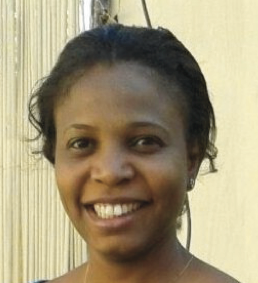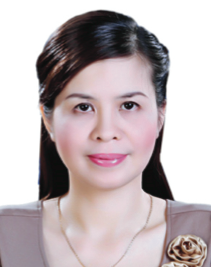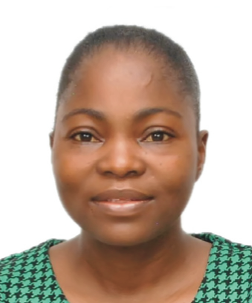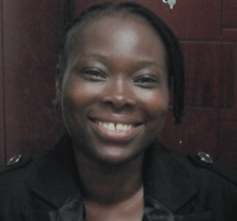Four physicists and a mathematician have been named winners of the 2015 Elsevier Foundation Awards for Early Career Women Scientists in the Developing World, in recognition of research that has strong potential social and economic benefits. The winning scholars are from Nigeria, Sudan and Vietnam and are being honoured for their accomplishments in nanoparticle physics, computational mathematics, atmospheric and medical physics. They are also celebrated for encouraging young women in their home countries to pursue careers in the critically important fields of physics and math.
The Elsevier Foundation awards are given in partnership with the Organization for Women in Science for the Developing World (OWSD) and The World Academy of Sciences (TWAS) for the advancement of science in developing countries. The five winners will receive their awards on February 14th during a ceremony at the Gender & Minorities Networking Breakfast at the American Association for the Advancement of Science (AAAS) Annual Meeting in San Jose, California.
The winners are:
 • Dr. Nashwa Eassa, assistant professor of physics, Al Neelain University, Khartoum, Sudan (Arab Region) Nanoparticle Physics: For her research on a type of high-speed semiconductor, focusing on how to lessen the film that accumulates on its surface and interferes with the flow of electrical current. She is also involved in a project developing methods for using solar radiation to treat water and for splitting water molecules so that hydrogen can be collected.
• Dr. Nashwa Eassa, assistant professor of physics, Al Neelain University, Khartoum, Sudan (Arab Region) Nanoparticle Physics: For her research on a type of high-speed semiconductor, focusing on how to lessen the film that accumulates on its surface and interferes with the flow of electrical current. She is also involved in a project developing methods for using solar radiation to treat water and for splitting water molecules so that hydrogen can be collected.
Dr. Eassa stressed the impact of the award, "The prize is very encouraging for Arab women and will show girls in my country that they can achieve their career goals, too."
 • Dr. Dang Thi Oanh, head of the Division of Science, Thai Nguyen University of Information and Communications Technology, Vietnam (East and South-East Asia & the Pacific Region)
• Dr. Dang Thi Oanh, head of the Division of Science, Thai Nguyen University of Information and Communications Technology, Vietnam (East and South-East Asia & the Pacific Region)
Computational Mathematics: For developing algorithms that are used to solve problems that are normally too complicated for computers. Her work has helped to improve the accuracy of these methods, typically used for solving problems in fields such as artificial intelligence and computer graphics.
“It is important that the world sees how women are contributing to the 21st century Vietnamese economy through science research," said Dr. Oanh, "I am proud to be a part of this.”
 • Dr. Mojisola Oluwyemisi Adeniyi, head of the Atmospheric Physics/ Meteorological Research Group, Department of Physics, University of Ibadan, Nigeria (Sub-Saharan Africa Region)
• Dr. Mojisola Oluwyemisi Adeniyi, head of the Atmospheric Physics/ Meteorological Research Group, Department of Physics, University of Ibadan, Nigeria (Sub-Saharan Africa Region)
Lower Atmospheric Physics: For her research using modeling to understand weather and climate, as well as atmospheric radioactivity, lightning and food security. Her research has shed light on when to best plant staple crops in Nigeria. She has also presented on efforts to improve the accuracy of climate models.
Dr. Adeniyi remarked, “Nigeria is growing in importance in the developing world and our science research capabilities will be a big part of that. I am thrilled that my contributions to my discipline are being acknowledged.”

• Dr. Mojisola Usikalu, senior lecturer in physics, Covenant University, Nigeria (Sub-Saharan Africa Region)
Medical/Radiation Physics: For her research on how radiation affects health, finding that exposure to microwave radiation, for example, could increase anxiety and reduce sperm counts in animals. She is also active in promoting physics in her home country, participating in programmes meant to guide young women into studying university-level physics.
Dr. Usikalu, an active member of the Nigerian Chapter of Women in Physics, said, “Such recognition at this moment in my career is very rewarding and I believe it will inspire my junior colleagues that hard work does get rewarded.”
 • Dr. Rabia Salihu Sa’id, deputy dean of student affairs, Bayero University, Nigeria (Sub-Saharan Africa region)
• Dr. Rabia Salihu Sa’id, deputy dean of student affairs, Bayero University, Nigeria (Sub-Saharan Africa region)
Atmospheric Physics: For her research that seeks to solve Nigerian environmental challenges, such as decreasing deforestation by turning carpenters waste into briquettes to replace firewood. She is currently working on a government project to gather atmospheric data, and is a mentor in local and national science projects that encourage youth participation.
Dr. Sa’id, a mother of six children, acknowledged the importance of winning such awards in encouraging girls to reach for the stars: “In some areas of our country, girls’ education is struggling to be recognized. This award will demonstrate how women can contribute to our society for the greater good.”
The 2015 Elsevier Foundation awards competition focused on physics and math, and a selection panel of eminent physics scholars and mathematicians selected each winner based on her achievements. The prize includes USD $5,000 and all-expenses paid attendance at the 2015 AAAS Annual Meeting. In addition, this year the Abdus Salam International Centre for Theoretical Physics (ICTP), based in Trieste, Italy, is offering each of the winners free attendance and accommodation at one of ICTP's renowned workshops or conferences.
"OWSD is very proud to have been a key partner in these awards over the last five years. Each year, five very talented women scientists have been selected from countries with challenging conditions for science in general and for women in particular,” said Professor Fang Xin, president of OWSD. “Furthermore, this year's awards are in maths and physics, two fields that typically have a low take up rate for women. The fact that the awards are presented during the AAAS annual meeting gives the awardees high visibility and they will make many important contacts here to further their research. I extend my full congratulations to this year’s inspiring winners."
"TWAS is committed to reducing the gap between men and women in the science and engineering professions, so that we can better achieve sustainable development in all nations," said TWAS executive director Romain Murenzi. "The 2015 Elsevier award winners, through their excellent research and commitment to education, represent the important progress we are making. Clearly, these young women will be leaders in their fields of research and in their countries."
David Ruth, executive director of the Elsevier Foundation, said, "We are very honoured to be able to recognize these remarkable women who are working to overcome obstacles and make valuable contributions in their respective fields. These women are leaders and we are delighted to be able to celebrate them at this year’s AAAS meeting."
----
About TWAS
The World Academy of Sciences for the advancement of science in developing countries (TWAS) works to advance sustainable prosperity through research, education, policy and diplomacy. TWAS was founded in 1983 by a distinguished group of scientists from the developing world, under the leadership of Abdus Salam, the Pakistani physicist and Nobel Prize winner. Today, TWAS has some 1,150 elected Fellows from 90 countries; 15 of them are Nobel laureates. The Academy is based in Trieste, Italy, on the campus of the Abdus Salam International Centre for Theoretical Physics (ICTP). Since 1983, its mission has focused on supporting and promoting excellence in scientific research in the developing world and applying scientific and engineering research to address global challenges. TWAS receives core funding from the Government of Italy. The United Nations Educational, Scientific and Cultural Organization (UNESCO) administers TWAS funds and personnel. (www.twas.org)
About OWSD
The Organization for Women in Science for the Developing World (OWSD) is an international organization affiliated with TWAS. Headed by eminent women scientists from the South, OWSD has more than 4,000 members. The central role is to promote women's access to science and technology, enhancing their greater involvement in decision-making processes for the development of their countries and in the international scientific community. Created in 1989, OWSD's overall goal is to work towards bridging the gender gap in science and technology. OWSD uses its forum to promote leadership, exchanges and networking for women scientists as well as for discussions to assist in the development of national capabilities to evolve, explore and improve strategies for increasing female participation in science. (www.owsd.net)
About The Elsevier Foundation
The Elsevier Foundation is a corporate not-for-profit 501(c)(3), funded by Elsevier, a global provider of scientific, technical and medical information products and services. The Elsevier Foundation provides grants to knowledge centered institutions around the world, with a focus on developing world libraries, nurse faculty and scholars in the early stages of their careers. Since its inception, the Foundation has awarded more than 90 grants worth over $5 million to non-profit organizations working in these fields. Through gift-matching, the Foundation also supports the efforts of Elsevier employees to play a positive role in their local and global communities. www.ElsevierFoundation.org
About Elsevier
Elsevier is a world-leading provider of information solutions that enhance the performance of science, health, and technology professionals, empowering them to make better decisions, deliver better care, and sometimes make groundbreaking discoveries that advance the boundaries of knowledge and human progress. Elsevier provides web-based, digital solutions — among them ScienceDirect, Scopus, Elsevier Research Intelligence and ClinicalKey— and publishes over 2,200 journals, including The Lancet and Cell, Materials Today and over 25,000 book titles, including a number of iconic reference works.
The company is part of Reed Elsevier Group PLC, a world leading provider of professional information solutions in the Science, Medical, Legal and Risk and Business sectors, which is jointly owned by Reed Elsevier PLC and Reed Elsevier NV. The ticker symbols are REN (Euronext Amsterdam), REL (London Stock Exchange), RUK and ENL (New York Stock Exchange).

